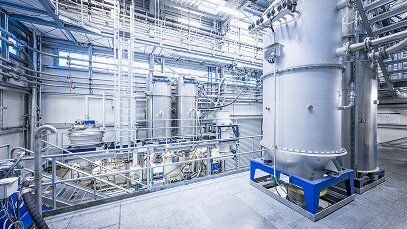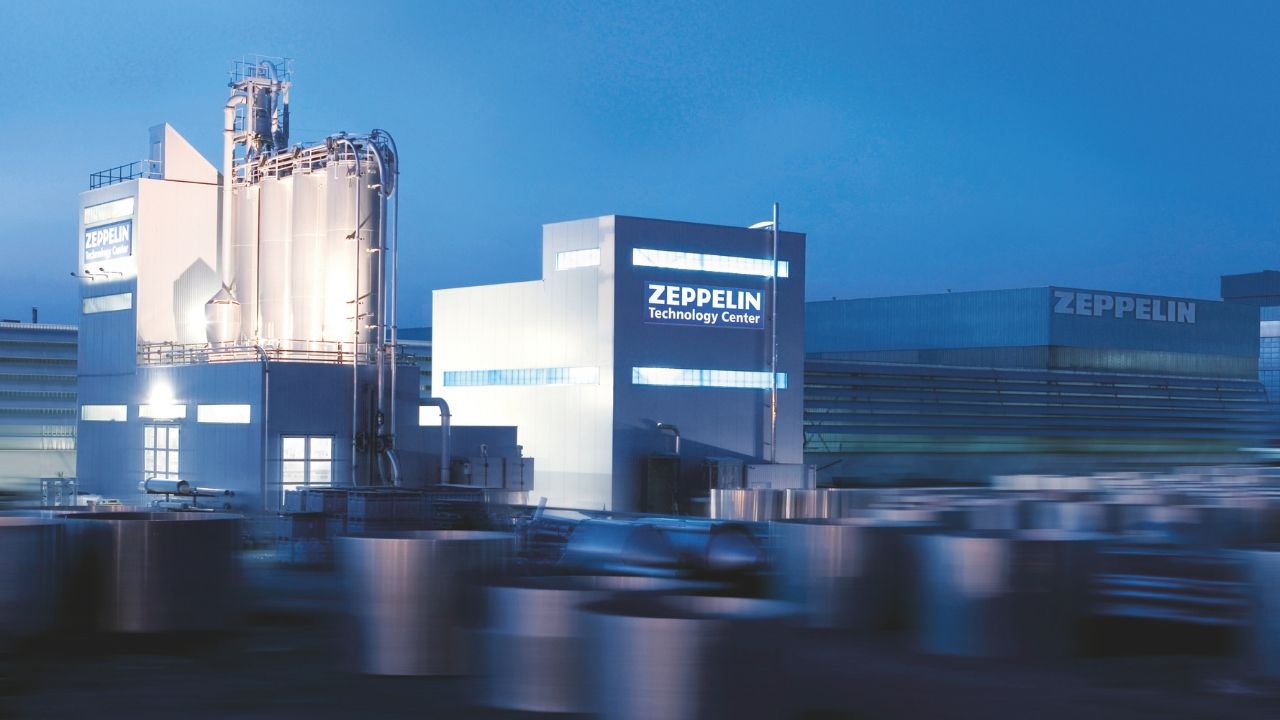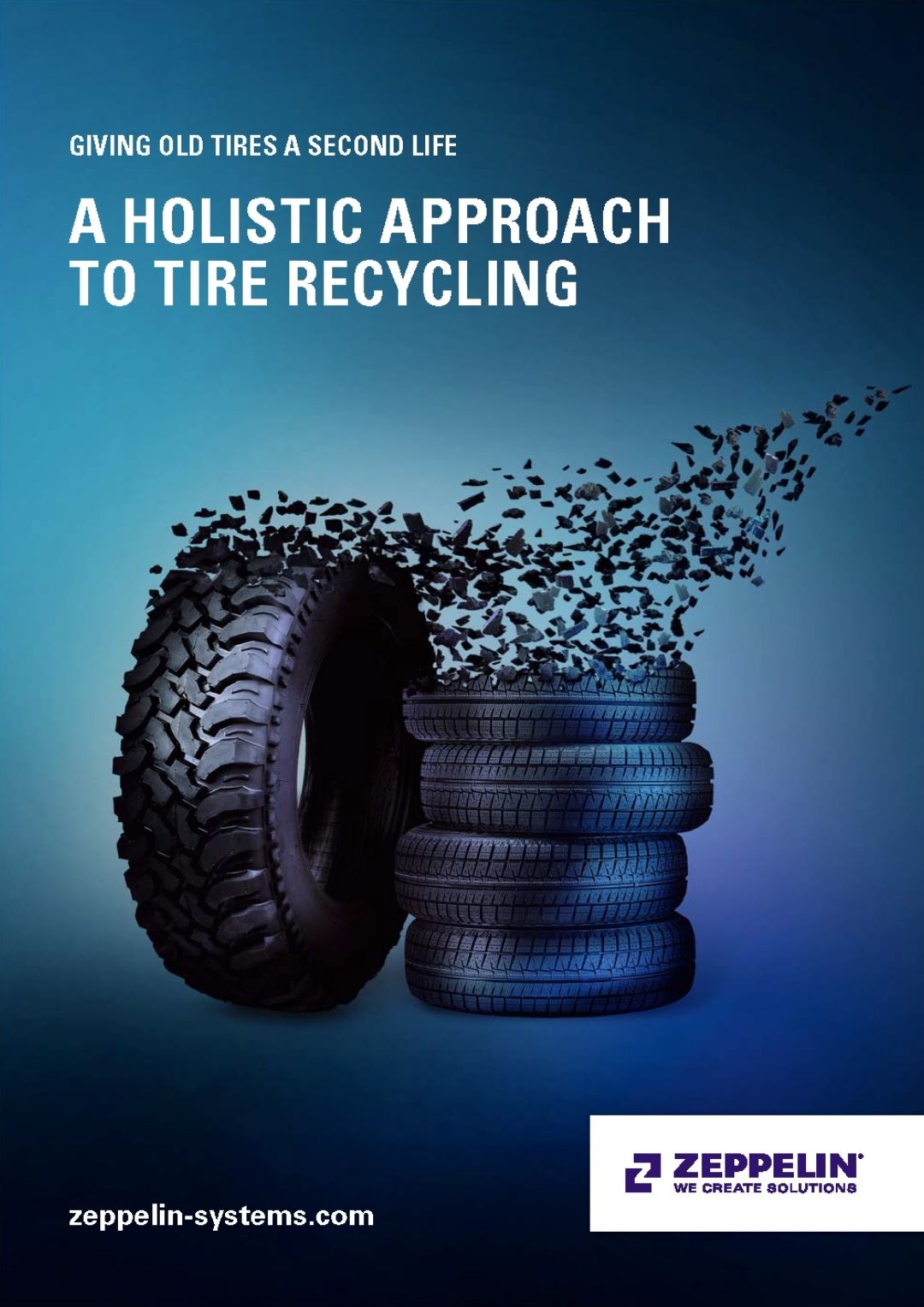
Rubber- and Tire Recycling
More recyclates, more future: precision for sustainable tires!
Tire production redefined: More precise, more reliable, better!
To positively and sustainably support the circular economy in tire production, the amount of high-quality tire recyclates and sustainable materials available for the manufacture of new tires must be significantly increased. This can only be achieved through more precise material handling. By recovering high-grade secondary raw materials and conserving resources, we can work with you to bring the circular economy to life across the entire value chain of tire manufacturing.
With Zeppelin Systems, you're on the safe side





Higher quality use of recycled raw materials
The current market reality is that traditional tire recycling methods deliver only limited material quality. As a result, recycled components are typically unsuitable for use in the production of new tires. In most cases, tires are separated into their individual fractions—steel, textile, and rubber—with the rubber primarily used for low-value applications such as simple flooring or sports surfaces. High-value reuse of recycled materials, particularly tire-to-tire recycling, has so far only been possible in isolated cases.
This is precisely where Zeppelin Systems comes in.

Zeppelin Sustainable Tire Alliance
In 2023, Zeppelin Systems launched the Zeppelin Sustainable Tire Alliance, an international network dedicated to making the tire recycling process more efficient and sustainable. The goal is to recover high-quality secondary raw materials suitable for use in the production of new tires—helping to conserve valuable resources.
In response to growing environmental pressures, rising energy costs, and increasing resource scarcity, the alliance’s partners—spanning the entire value chain—rely on innovative technologies to recycle end-of-life tires and promote a more sustainable tire production industry for today and tomorrow.

FEL-Engineering
Whether it’s a new installation, modernization, or plant expansion – our global engineering departments apply their extensive experience and expertise to optimize planning processes. The result: an innovative concept that saves both time and costs. To achieve this, we design Front-End Loading (FEL) planning processes for maximum efficiency. Zeppelin Systems provides the necessary know-how and tailored engineering services across all FEL phases to ensure your project is optimized at every stage.

Design studies for confident decision-making
For large-scale projects, customers and investors need a reliable basis for decision-making. Feasibility studies conducted at the beginning of a project help ensure its successful completion by providing solid figures, data, and facts for the planned business case—including ROI indicators.
Using process descriptions, 3D models, layout plans, operating costs, technical documentation, on-site infrastructure, and Green Factory aspects, we transform ideas and visions into concrete, reliable business plans. As an experienced plant engineering partner, Zeppelin Systems prepares these feasibility studies, evaluates all necessary requirements and local conditions, and delivers a compact decision-making foundation—including a cost estimate—for project implementation.

Mechanical Recycling
Intact tires are sent for retreading, while the rest are mechanically broken down into their individual components using innovative technologies. Even off-the-road (OTR) and giant tires—such as those used on construction vehicles in diamond mines, with diameters of up to four meters—can be dismantled using a high-pressure water jet process.
The high natural rubber content in large tire compounds makes the resulting recyclates particularly valuable. Additionally, this recycling method creates a significantly textured surface structure, which is essential for re-crosslinking the material so it can be re-vulcanized into new tire or rubber compounds.
The cleanly separated rubber granules or rubber powder produced in this process serve as a base for further refinement—such as activating the rubber through a reclaim process or devulcanizing it. This devulcanization is a prerequisite for re-vulcanizing the material. In short: the recycled material can be reused in tire production.

Raw Material Recycling
The remaining parts of the tire are fed into material recycling processes—such as pyrolysis. In pyrolysis, end-of-life tires are broken down into raw materials, producing, among other things, recovered carbon black (rCB) and pyrolysis oil.
Separated textile fibers are processed into stabilizers for stone mastic asphalt. The product derived from these fibers during tire recycling acts as an asphalt binder, stabilizing and reinforcing asphalt mixtures to create homogeneous and long-lasting road surfaces. In fact, the additive offers superior performance compared to conventional stabilizers—it reduces water ingress, fatigue, thermal cracking, and rutting.
In a subsequent refinement step, the rCB obtained from pyrolysis is thoroughly purified to remove ash content and sulfur. The result for the industry: rCB with consistent, reproducible quality and purity—comparable to conventionally produced industrial carbon black. Additionally, valuable zinc- or silicon-based products can be recovered from the separated ash content, enabling the tire industry to close further material loops for the first time.
Zeppelin Systems Technical center

For safe, efficient, and optimized processes
Only by understanding the product in every detail can plants be designed to operate safely, with optimized processes, high energy efficiency, and cost-effectiveness. The bulk material technical center in Friedrichshafen is equipped with all components and systems relevant to process engineering. It is also home to one of the world’s largest bulk material libraries—containing the knowledge our experts have accumulated over decades of handling a wide range of materials.
Two large-scale test facilities for granulates, powders, and additives allow trials to be carried out at full industrial scale—including special configurations where required. Our experts determine all relevant design parameters and conduct precise result analyses, giving you a solid foundation for your investment decision. A few examples of application cases include:

Conveying trials for recovered carbon black (rCB)
At our technical center in Friedrichshafen, we can carry out industrial-scale conveying trials with recovered carbon black (rCB). Backed by decades of experience in the rubber and tire industry and supported by numerous practical tests, we are your competent and reliable partner for all types of trials and formulation adjustments. Don’t hesitate to contact us!

Silo discharge of bulk material (recovered carbon black and granulates)
To keep the production process running smoothly, proper silo design and reliable product discharge are essential. At the Zeppelin Systems site in Friedrichshafen, recovered carbon black and rubber granulates are analyzed in our in-house laboratory. Based on these findings, the appropriate silo material and optimal discharge system are determined. Of course, practical trials can also be conducted at the adjacent Zeppelin Systems technical center to validate the solution under real conditions.

Mixing trials for consistent quality
Blending silos are becoming increasingly important in the recycling industry to ensure consistent product quality. In our blending silos, virgin and recycled carbon black can be gently and reliably mixed using gravimetric methods—ensuring homogeneous distribution and process safety.

Mixing trials for granulates and additives for high-quality end products
For high-quality applications and end products, rubber granulates or rubber powders must be blended with auxiliary substances. With Zeppelin Systems’ innovative mixing technologies, rubber granulates and powders can be mixed or coated with activation additives and/or devulcanization aids. As a long-standing and experienced plant engineering specialist, we ensure optimal and homogeneous blending of all components—guaranteeing consistent product performance and processing quality.
Need more details? Our contact person will be happy to assist you
Services
Discover our comprehensive range of services

Zeppelin Technical Center
Industrial-scale testing
Testing is good; testing at a 1:1 scale under real-world conditions is even better. To support this, we have established optimal facilities at our Friedrichshafen technical center: based on your recipe and desired throughput, we identify the plant technology tailored to your needs — and test the complete system for you in live operation.
Go to technical center
Automation
Automation with foresight
Above all, your plant must do one thing: run and deliver. That’s why we provide you with reliable, professional service. Rely on our global service network for expert consultation and extremely fast spare-parts supply to minimize downtime. When needed, we’re also at your side digitally—from virtual troubleshooting to online-supported commissioning.
Go to automation solutions
Service
Service without compromise
In the 21st century, optimization often means automation. We ensure that your automation project is a complete success in terms of both efficiency and cost-effectiveness. To achieve this, we rely on cutting-edge control systems whose open architectures prepare you for the challenges of tomorrow—and beyond.
Go to servicesResources
Brochures for download
Explore more from the Zeppelin Systems portfolio
Products
© 2026 Zeppelin Systems GmbH
